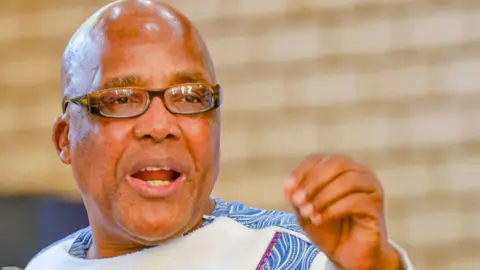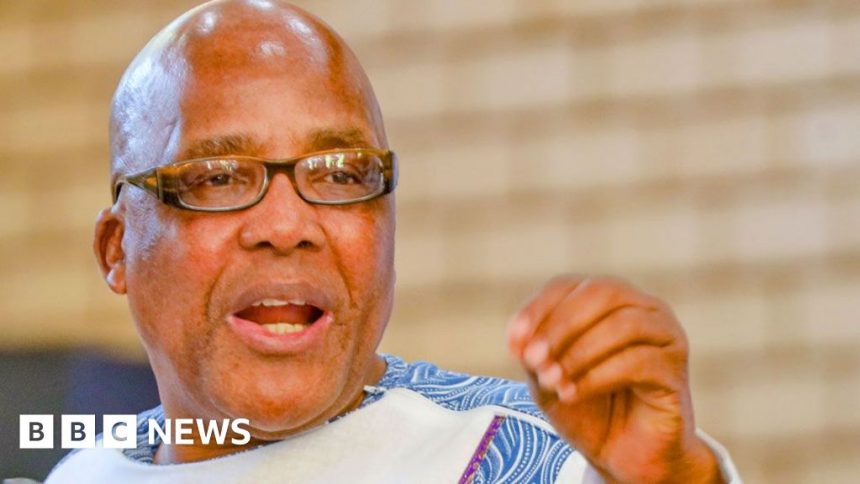US HIV funding cut is ‘wake-up call’ for S Africa
 Getty Images
Getty ImagesThe US government’s sudden decision to axe funding for HIV programmes is a “wake-up call” for South Africa, the country’s health minister has told the BBC.
Dr Aaron Motsoaledi, responding to US termination notices issued late on Wednesday, said the cuts could lead to deaths, but he had instructed state-funded clinics to ensure no patient went without life-saving drugs.
There is chaos as many affected organisations scramble to find alternative help for some 900,000 HIV patients by the end of the day.
“Instead of a careful handover, we’re being pushed off a cliff,” said Kate Rees from the Anova Health Institute, one of the biggest recipients of special US funding to counter the spread of HIV.
The US’s HIV programme was launched in 2003 by then US President George W Bush and is known as the US President’s Emergency Plan for Aids Relief (Pepfar).
Pepfar funding is distributed via the US government’s main overseas aid agency USAID. It has been regarded as a ground-breaking scheme that has enabled some of the world’s poorest people to access anti-retroviral drugs (ARVs) and has saved more than 25 million lives worldwide.
A 90-day freeze on US foreign aid payments instituted by President Donald Trump on his first day in office last month has already upended the global aid system.
- What’s really driving Trump’s fury with South Africa?
- What is USAID and why is Trump poised to ‘close it down’?
South Africa is one of the biggest beneficiaries of Pepfar, which contributes about 17% to its HIV/Aids programme, in which about 5.5 million people out of eight million people living with HIV receive ARVs.
Like all such US-funded organisations in South Africa, the Anova Health Institute was notified overnight on Wednesday about the decision by US President Donald Trump’s administration to terminate tens of billions of dollars of aid contracts.
Dr Rees described the announcement as one of the “worst days” of her career, especially as there had been plans afoot to reduce the dependency of HIV programmes on donor aid.
This was to take place over the next five years, making it easier for the country’s health department to take over, she said.
Health experts say Pepfar funding was also helping with research for a cure for HIV, and that the cuts would set that work back years.
The Desmond Tutu Health Foundation projects the US’s move could result in as many as half a million deaths.
South Africa’s leading Aids lobby group, the Treatment Action Campaign (TAC), warned the country could see a return to when HIV patients struggled to access necessary services for their treatment.
“We can’t afford to die, we can’t afford to go back to those years where we were suffering with access to services, especially for people living with HIV treatment,” said TAC chair Sibongile Tshabalala.
She was speaking during a digital news conference on Thursday, in which representatives from organisations that work with HIV patients described the chaos and despair caused by the termination of the funding.
Ms Tshabalala, who has HIV, became emotional as she questioned how she and others like her would survive in the wake of the funding cuts.
South Africa’s ARV programme is the largest in the world.
You may also be interested in:
 Getty Images/BBC
Getty Images/BBCGo to BBCAfrica.com for more news from the African continent.
Follow us on Twitter @BBCAfrica, on Facebook at BBC Africa or on Instagram at bbcafrica








